29, January 2020
Biya and the February twin poll: Reshuffling in CPDM 0
While the crisis in Anglophone Cameroon shows no real signs of letting up, on February 9th Cameroonians will nonetheless head to the polls for legislative and municipal elections. The international community’s weak commitment to mediation, the factionalization of the Anglophone movement, and the government’s scorched earth tactics have perpetuated a slow-burning conflict that shows little signs of letting up. The most important Anglophone groups boycotted a Major National Dialogue held in October. The recent legislation of a “special status” for Northwest and Southwest regions has failed to attract support from the most prominent Anglophone groups, who now see federalism as the negotiating starting point.
Nonetheless, Paul Biya is pushing ahead. At stake are 180 seats in the National Assembly and 374 local government councils. The exercise is entirely devoid of sincere democratic meaning. Maurice Kamto and the MRC – only recently released from lengthy detentions following the contentious events of 2018’s presidential election – have boycotted. The SDF’s decision to participate has fractured the party and led to violent threats against their candidates. The UPC’s entire legislative slate was temporarily deemed ineligible to run by the electoral management body. Other parties have lamented the severe security restrictions placed on the electoral process, while separatist groups have threatened to disrupt any attempt to hold an election.
What is the point if the outcome is not in doubt and no credible election can be held? The election will reveal very little about how popular Paul Biya is, and no international observer could sincerely believe that the election will be free and fair. 2020 will be yet another year Cameroon’s long history of authoritarianism.
Scholars increasingly identify such elections as opportunities for autocrats to replenish internal support and build a more compliant political elite. Burgeoning literature has identified legislatures as key institutions that help perpetuate authoritarian rule. Authoritarian legislatures generally lack the capacity to actually legislate and are subservient to the presidency. Therefore, rather than joining the legislature to pursuit policy aims, the legislature offers elites institutionalized access to a steady stream of formal and informal material benefits. In exchange for this access, members of parliament (MPs) are expected to mobilize electoral support and demonstrate loyalty to the regime in public forums. Nomination on the ruling party’s ticket usually means that an MP will win the general election, so all the drama occurs behind the scenes during the candidate selection process.
But, selecting people to serve in the legislature is tricky. To mobilize support, especially in poor countries like Cameroon, MPs must expend significant resources on campaigning. Once in office, MPs are also expected to divert the state budget to the benefit of their constituents, and to themselves spend money to meet constituent demands. Across Africa, this quality of elections has led to a dramatic increase in the number of business elites who have entered the legislature. In authoritarian settings, this is often referred to as “competitive clientelism.” The problem for autocrats is that business elites are not always vetted by a credible selection process. Under certain circumstances, business elites could simply be the highest bidders rather than true regime loyalists.
How do regimes cultivate a candidate base that can simultaneously mobilize electoral support while also ensuring loyalty to the regime?
In my research, I argue that Cameroon’s ruling party has banked on a steady stream of candidates from the civil service. The civil service in Cameroon has historically served as a main avenue for socioeconomic advancement. Cameroon’s first president encouraged the creation of prestigious grand ecoles, in particular a civil service training academy called ENAM, to recruit a new political class into the regime. Admission into these schools was informally based on ethnic quotas, and graduation generally ensured a promising career for aspiring elites. For an authoritarian regime like Cameroon’s, the civil service structured career paths provided a mechanism for monitoring that new elite and identifying those deserving of promotion to other institutions like the legislature. This tool was, arguably, particularly important in Cameroon, where the ruling party lacked cohesion and did not have a robust grassroots presence to recruit and vet candidates.
With the transition to multiparty election in 1992, the ruling CPDM began to use local primaries to select legislative candidates. The result was an explosion in candidacy and severe intra-party tensions over the selection process. Some of the criticisms were over the influx of cash into primaries, which benefitted the wealthiest candidates. Others claimed that local primaries helped entrench local ethnic groups in power. While the CPDM’s central committee ultimately endorsed the final candidate list, overturning local results proved equally problematic. In an effort to re-exert control, in 2013 the CPDM did away with primaries and began to adjudicate all electoral lists within the central committee. This same selection system was used at the end of 2019 to choose the 2020 legislative (and municipal) slate. In practice, local party members still have sway over the nomination process, and the CPDM at times encourages lists to merge for the sake of local solidarity.
In one of my research projects in Cameroon I track how the occupational backgrounds of MPs has evolved between 1972 and present day. I do this by tapping into difficult to access resumes and biographical records of over 800 MPs. Commensurate with expectations, since multipartyism the proportion of business elites has grown substantially. During the single-party era most legislative candidates came from a very narrow elite. These early MPs were primarily petty civil servants or public-school teachers. There was no business class to speak of. This changed dramatically in the 1990s with the liberalization of politics and the Cameroonian economy. By my estimate, business elites have risen from just 6% of the legislature to over 30%.
However, a second trend is the concurrent rise of MPs with government service backgrounds. This group of MPs primarily includes individuals who joined the civil service at a young age (often with degrees from ENAM) and worked in generic positions like Customs Official or Post and Telecommunications Engineer. MPs with government experience are once again the largest occupational category in the legislatures, at 48%. Notably, there was a big shift in 2013 when the CPDM changed its candidate selection process. Of the 51 regime MPs who were not renominated between 2007 and 2013, 43% were from the business community while just 29% came from government service. Their replacements were twice as likely to be former government workers than businesspeople. The below figure summarizes these trends. Note that the category “professional” includes business adjacent occupations like doctor or lawyer, while “other” is a residual category that captures occupations like “taxi driver” or “secretary.”
Why would a regime prefer candidates with civil service backgrounds? Given the historical role of the civil service in political recruitment it makes sense. As noted, civil service careers offer career ladders up which an eventual nominee must climb. Since the process is likely politicized, this provides an opportunity for aspiring elites to demonstrate their trustworthiness and partisan loyalty. Concurrently, government service provides eventual candidates with opportunities for wealth accumulation and provides them with familiarity with the bureaucratic workings of government. Consequently, once in office they can mobilize electoral support without all of the baggage that comes with a more independent business career. MPs with government service backgrounds can compete with business elites, while providing greater assurance to the regime.
The available data for 2020 reveals a similar story. While the occupational backgrounds of the new candidates are still unknown, we do know which MPs lost or retained their seats. The regime has stated that it was seeking to renew political blood in the legislature and encouraged the local party chapters to consider younger candidates. Indeed, more senior MPs were not renominated in 2019 than in 2013 (even though the overall age of the MPs retained is similar). Moreover, despite local competition, many long-serving MPs retained their seats, like the Speaker of the House Cavaye Djibril. Managing inter-generational tensions is another reason the regime has exercised more control over candidate selection, and another key function of this legislative exercise.
We also know that of the 56 regime candidates not renominated in 2019, 26% had professional backgrounds, 25% had business backgrounds, 20% had government backgrounds, 20% had educational backgrounds, and 9% came from other occupations. Once again, this indicates a slight preference for candidates with some form of government service. Categorizing the occupational backgrounds of their replacements is currently ongoing.
These legislative elections have been delayed for nearly two years. During that time the security situation in Northwest and Southwest regions have not improved. Yet, the pressure to gain access to the resources that a legislative seat conveys have not changed. Likewise, as the regime faces greater international scrutiny of its activities during this conflict, it needs strong allies to advocate for it in the public sphere. The 2020 legislative election primarily serves this function. It allows Paul Biya to reshuffle the political elite, use his control over candidate selection to position stronger allies, and present the illusion of a legitimate democratic process.
Culled from Presidential-power.net

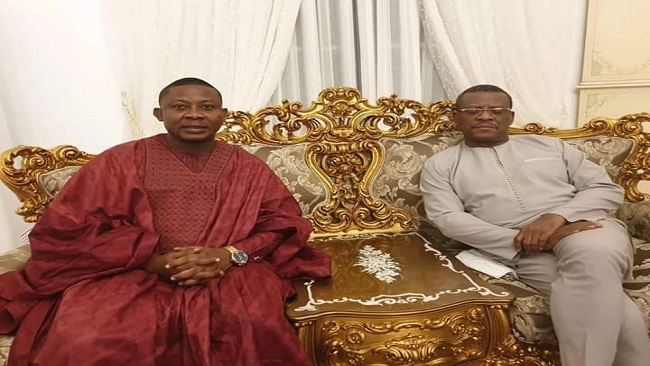
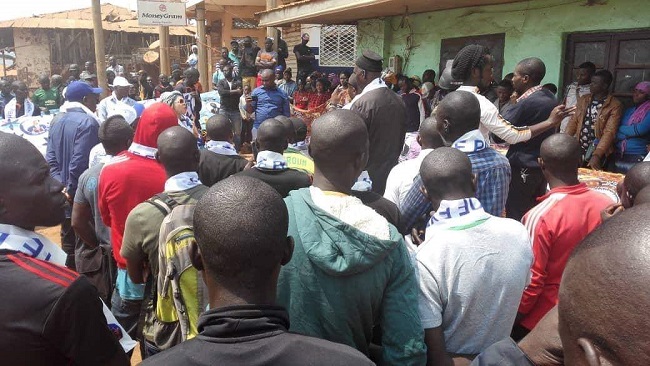


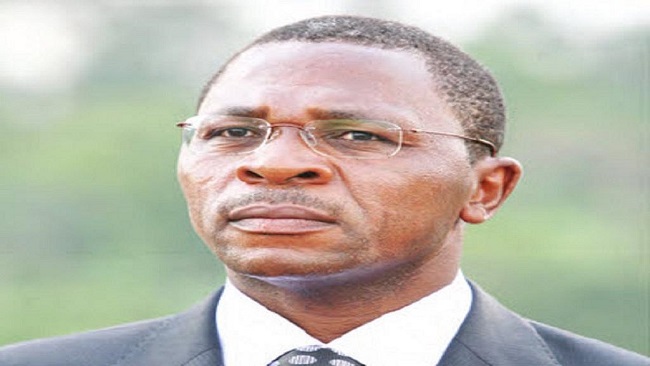

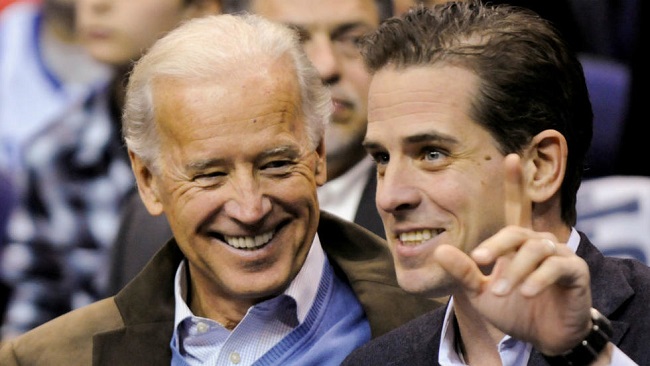


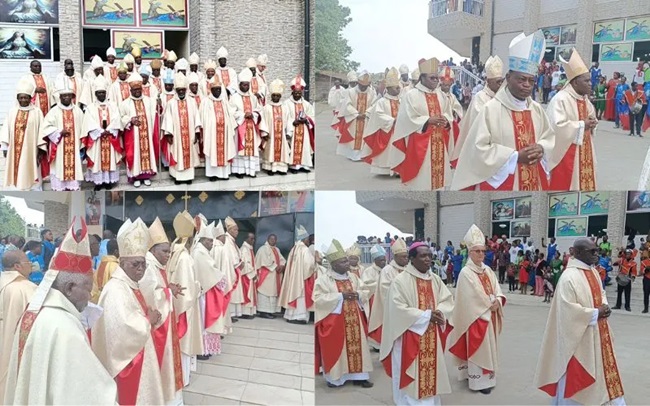








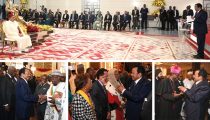

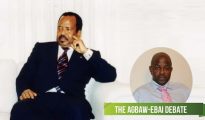





31, January 2020
US: Republicans confident they can block new Trump trial witnesses, but uncertainty remains 0
Democratic prosecutors and Republican defenders at President Donald Trump’s impeachment trial on Thursday barreled toward a confrontation over new witnesses, something that would deny Trump the swift conclusion of the matter that he seeks.
As US senators spent a second day firing questions at both legal teams, Republicans, who control the chamber, said they were confident they could hold a final vote and acquit Trump as early as the weekend.
But some holdouts were suggesting they may side with Democrats and demand testimony from former national security adviser John Bolton and perhaps others regarding Trump’s dealings with Ukraine.
Lisa Murkowski, a Republican from Alaska, argued in a submitted question that additional witnesses could be necessary.
“The dispute about material facts weighs in favor of calling additional witnesses with direct knowledge,” Murkowski said.
“Why should this body not call Ambassador Bolton?” Senator Lamar Alexander, a key Republican vote from Tennessee, told CNN he would detail his position on witnesses after Thursday’s session.
Possible testimony from Bolton is of particular interest after a report – which he has not denied – that he planned to say in an upcoming book that Trump told him he wanted to freeze $391 million in US military aid for Ukraine until it investigated Democratic presidential contender Joe Biden and his son Hunter, who worked for a Ukrainian energy firm while his father was vice president.
The Democratic-controlled House of Representatives impeached Trump in December, formally accusing him of abusing his power for pressuring Ukraine to investigate the Bidens. The House also charged Trump with obstruction of Congress.
Republicans hold a slim majority in the 100-member Senate, and the defection of more than three on the question of witnesses would prolong Trump’s trial and stymie his allies who hope to hold a final vote soon and minimize the political damage to the president.
Two-thirds of the Senate is required to remove Trump from office. He is unlikely to be convicted.
Earlier in the day, John Barrasso, the Senate’s third-ranking Republican, told reporters that Republicans were likely to beat back the Democratic effort for witnesses.
Trump’s acquittal would allow him to claim vindication just as the Democratic Party holds its first nominating contest for the Nov. 3 election in Iowa on Monday.
Trump held a rally in Des Moines, Iowa, on Thursday night and slammed the trial, calling it an effort by Democrats to overthrow his 2016 election victory.
“They want to nullify your ballots, poison our democracy and overthrow the entire system of government,” Trump said.
Trying to unmask whistleblower
The two sides also sparred over the unnamed government official whose whistleblower complaint about Trump’s dealings with Ukraine spurred the drive to remove him from office.
Trump and some other Republicans have pressed for months to unmask the intelligence official who filed the report and have tried to paint that person as a partisan figure working with Democrats to destroy Trump’s presidency.
The government has provided security to the whistleblower in response to security threats, according to the person’s lawyers.
On Thursday, the issue boiled to the surface again when US Chief Justice John Roberts, who is presiding over the trial, refused to read a question from Republican Senator Rand Paul that included the name of a person that right-wing media have accused of being the whistleblower.
Paul is one of several Republicans, including Trump, who have posted social-media links to some of those news articles.
“The presiding officer declines to read the question as submitted,” Roberts said. He had rejected a similar question the day before.
Paul said his question, which asked whether that person worked with a member of Democratic Representative Adam Schiff’s staff to impeach Trump, was not meant to unmask the whistleblower.
“My question’s not about the whistleblower. My question’s about two people who are friends,” he told reporters.
Democrats disagreed.
“This question was really framed and intended to expose the identity of the whistleblower and subject that whistleblower to retaliation,” Democratic Senator Richard Blumenthal told reporters.
Bradley P. Moss, a lawyer whose firm represents the whistleblower, called the Republican effort “a stain on the legacy of this constitutional republic.”
Closing arguments, and climactic vote
On Friday, each side is expected to present closing arguments before the Senate moves to the question of whether to call witnesses, which could inflict political damage on the president as he seeks re-election.
If the vote on whether to allow witnesses is 50-50, Roberts could step in to break the tie. But there is so little precedent for impeachment trials – this is only the third of a president in US history – that Senate aides said there was no way to know exactly what would occur.
If Roberts declines to break a tie, the vote deadlock would mean a defeat for Democrats.
Schiff, the lead Democratic prosecutor in the trial, proposed that both sides conduct closed-door witness depositions for a week while the Senate returns to normal business.
But there was no sign his plea was being considered by Republicans.
(Source: Reuters)